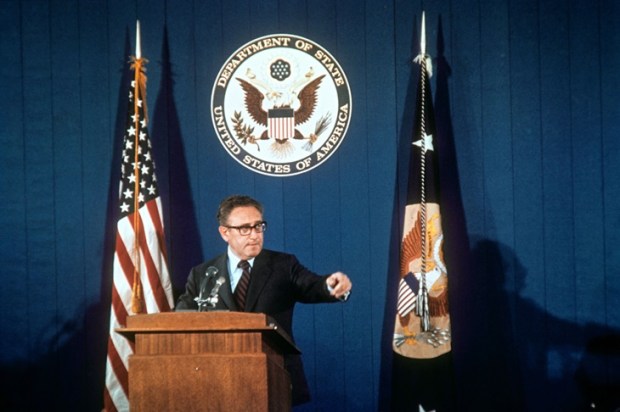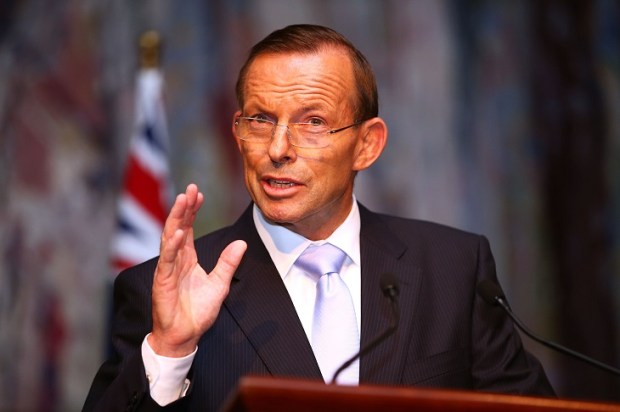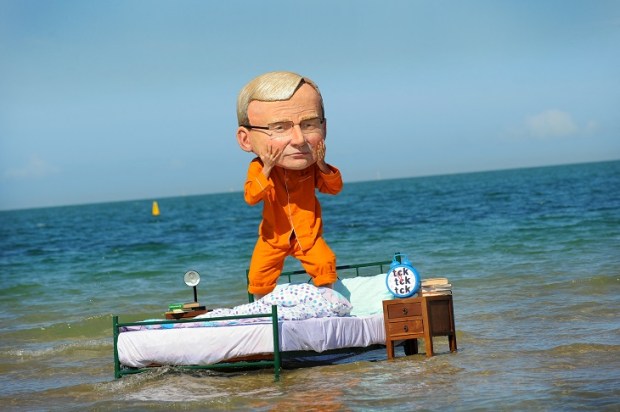Most astute commentators on the ‘zeitgeist’ of the times; in the realms of geopolitics, economics, resource scarcity etc – whether they be on the left or right – note the almost ‘existential’ crises that post-Liberal societies face.
The practical import of these crises are not ‘imagined’, as some liberals like to protest, but very real. They are manifested in the concerns shown by voters in the shift to traditional conservative movements in Europe and now, in the US, to Trump and Vance. There is a tendency to realise the extreme entropy that liberalism has caused following the second world war.
Last month, the What Worries the World survey was published. There are the usual concerns; inflation is first (33 per cent), poverty and social inequality second (29 per cent). The newcomer to the block was ‘Military Conflict between Nations’ and ‘Crime’, which are taking a more central position than previously.
Crime is a big deal in the UK, with 6/10 believing it to be a problem. 7/10 British believe Immigration to be a problem. Yet how these concerns transfer to political policy is the real modern dilemma.
Although it may explain the poor turnout.
People feel disenfranchised from politics. We seem to be moving to closed oriental models of ‘give us a better standard of living and we will suffer the rest’ vis a vis China & Co. Declines in electoral turnout, a divisive elite and a lack of direct participation in affairs are the main indicators of a system which is not working. This is echoed in the European Union with the recent elections showing gains for more traditionalist conservative groups. But in Britain Labour is redefining the wheel. It’s called spin growth.
The Labour Party in Britain received only 20 per cent of the possible vote. The electoral turnout was just 60 per cent. Labour took 33.7 per cent of this vote. The Conservatives took 23.7 per cent. Reform UK had 14.3 per cent. Probably the most startling statistic to come out of this election is that ‘Larry The Cat’ (who lives at no.10 Downing St) has a 44 per cent favourability rating. Vote Larry! However, the jury is out on whether he would make a better Prime Minister than Starmer. Some have concerns about his racist attitudes towards mice.
The first policy announcement to come from the Labour policy think hub was a reform of Football. Football is hugely corrupt, from Europe to Africa. It is no different in the UK, but it is hardly the priority for policy. Of course, metrosexual Keir Starmer has recently discovered football in an attempt to ingratiate himself with a group which he despises: the white working class. Liberal parties like to maintain the status quo despite the Whiggish rhetoric of progress. Reform means ‘non-threatening’ to the liberal elites, so policy becomes insubstantial. The ‘socialist’ Labour Party have long since abandoned appropriating the ‘means of production’, or nationalising the Banks, or helping poor people. This makes ‘cultural affairs’ paramount. They also practice divisive race and gender affairs. Andy Beckett of The Guardian stated post-election that Starmer had shifted to the right. If Keir Starmer is on the right, there would be no known classification for Oswald Mosley.
The central tenet of Labour policy is a 3.5 billion public sector pay rise for the loyal cadres of the NHS and teaching; an amount which the Institute of Fiscal Studies (IFS) say would need to be met from taxation. The Labour solution appears to be taking money from entrepreneurial sectors and putting it into the black holes of the civil service.
Labour appeals to the ‘median voter’, the HolyGrail of ‘Psephology’ for they are its constituency. The main pillar outlined by Rachel Reeves, the Chancellor, is one of ‘growth’. For that reason, the focus on Housing Policy (led by Angela Rayner and the irony of her Council House chicanery), needs to build housing in areas with decent paid jobs. However, building houses only works if ‘real’ jobs are created, rather than extractive civil servant positions. There is no point building houses in Newcastle if the jobs are near Heathrow Airport. Therefore, the housing strategy, unfocused, will be a plaster on a large wound. In the Labour policy vacuum, there is no mention of Tax Reform. Targeted tax reform could re-energise the economy but Liberal economies tend to penalise productive sectors to protect the median voter. Tax reform, which stops penalising poor people attempting to get out of poverty by doing part-time jobs, would help. The government could help with housing by abolishing Stamp Duty. They could reform the marginal rates on income tax. Instead, Britain penalises the poor by keeping them stuck in poverty. Abolishing the Child Benefit cap of two children would instantly help food poverty and boost the economy: this Keynesian boost goes directly into the economy by direct spending. Funding the civil service goes to obscure and redundant consultancies, rather than patients.
Then there is the problem of Europe, which appeared at this week’s European Political Community summit. Reintegration into Europe would be growth building, but Labour has stepped away from any concrete proposals. It involved the usual soundbites regarding helping Ukraine without allowing them to help themselves by firing on Russia. Spectacle is important for Labour; substance has long been sent to Tony Blair’s dustbin of history. The European Political Community was formed in 2022 by Macron, not to be confused with ‘The European Union’ or the ‘Council of Europe’. They needed a new organisation to paper over the cracks of the previous ones. Expecting the EU to focus on innovation and growth is akin to a singularity occurring in Brussels. It will not happen.
Ultimately, the short-termism of liberal democracy will not deliver strategic thinking situated as it is in the great power struggle of competing ‘grossraums’ i.e., with the Chinese. The long-termism of Beijing can be seen in the Belt and Road Initiative and their offering of soft loans to incorporate vassal states. This is anathema to the thinking of New Age Europeans, with a historical narrative of colonialism complex etc. History has always been about the ultimate control of resources; be they land or material. The modern resource, which China’s strategic mission notes, is labour. Industrial growth and innovation are at the heart of Chinese policy. The Working Age Population Survey shows how the trend in working-age population favours China and the global south. In high-income countries, the working-age population is declining. In the global south it is rising. It therefore means that aggressive policies to secure labour will be followed. But the Chinese model avoids the unpopularity of domestic immigration and focuses on de facto colonisation of satellite countries. Of course, Western democracies are imprisoned in their own liberal rhetoric regarding this, even though globalisation was in fact a type of economic colonisation. China, however, will have the political power to implement policy etc. Therefore, growth is a slippery customer and is defined by geopolitics as well as domestic concerns.
Britain and the Labour Party are a bit like Schrödinger’s Cat, neither in or out, neither dead or alive. There cannot be any long term strategic visions, when the median voter must be satisfied, or an election due. This is the dialectic of liberal democracy. At once a seed for innovation, but then, ultimately suffocating in righteousness. It is the same with Labour’s domestic policies – neither socialist or capitalist; it resides in the shadow lands of centralist Labour under Tony Blair. Full of sound and fury, but signifying nothing.
Brian Patrick Bolger LSE, University of Liverpool. He has taught political philosophy and applied linguistics in universities across Europe.

























